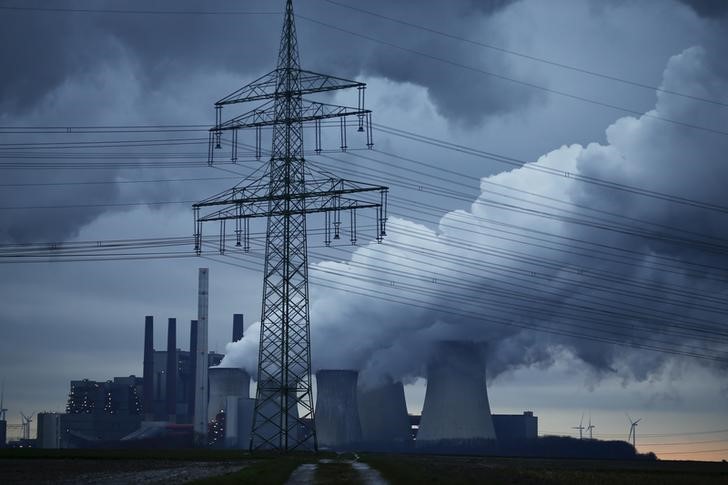By Christoph Steitz
FRANKFURT (Reuters) - Germany's top court declared the country's nuclear fuel tax illegal on Wednesday, raising the prospect of a 6 billion euro ($6.8 billion) refund to utilities at a time of strained balance sheets.
The verdict marks a second win for utilities over Germany's nuclear policy after a court ruled in December that a push to shut down all of Germany's nuclear plants violated their rights.
E.ON, RWE and EnBW have been hit hard by Chancellor Angela Merkel's decision to exit nuclear power by 2022, a move prompted by the disaster at Fukushima, Japan, in March 2011.
The nuclear fuel tax has further weighed on utilities. Imposed between 2011 and 2016, it amounted to payments of 6.285 billion euros from nuclear plant operators.
On Wednesday, the Karlsruhe-based Constitutional Court said the tax was "formally unconstitutional and void", adding the government did not have the legal competence to claim it.
"Now E.ON and RWE can expect a well-timed windfall that comes as a help during their restructuring," one local trader said. "It's a positive surprise and not fully reflected in analyst estimates."
E.ON said the ruling meant it would be refunded about 2.85 billion euros plus 450 million euros in interest, adding this would boost its net profit and lower its net debt. It confirmed its outlook for 2017.
E.ON shares rose as much as 5.6 percent, hitting a 10-month high. RWE shares climbed as much as 7 percent to their highest level in almost two years. Thinly-traded EnBW was up 2.1 percent.
In the aftermath of Fukushima, E.ON and RWE have both undergone major corporate overhauls, separating their conventional power plant businesses from operations such as renewables and networks.
The fuel tax required nuclear plant operators to pay 145 euros per gram of nuclear fuel each time they exchanged a fuel rod, which usually happens about twice a year.
RWE and EnBW have paid 1.7 billion and 1.44 billion euros, respectively.
